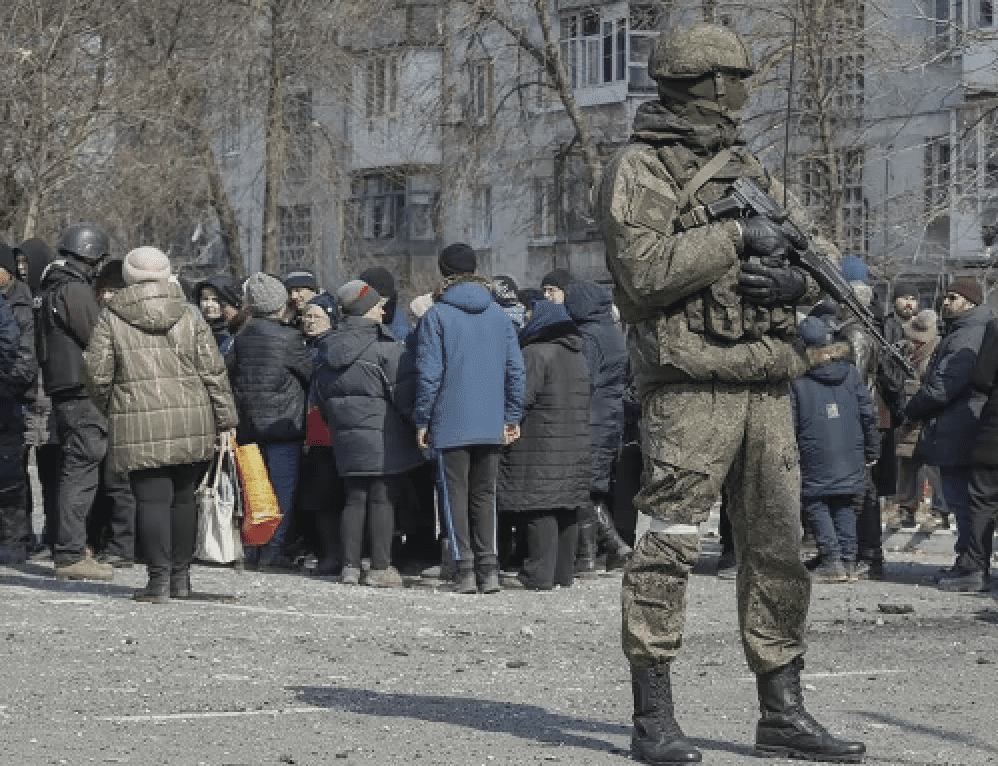They hid in houses, partly lived in the basement, went to work in groups and feared for themselves and their relatives every day. Nine months of stay in the Russian occupation turned their life into a trial.
Natalia (name changed) – 43 years old, lived in the Kherson region. A woman worked in a district hospital as an operating room nurse. Already in the first hours of the invasion, she with her colleagues operated on the victims. He says that there were many people then, because of the occupation, the work at the hospital increased significantly. Life in the occupation, as Natalia recalls, was sheer fear. The village almost died out, Russian soldiers were constantly walking the streets, the village was shelled from the city, and columns of military equipment were moving almost constantly.
Store shelves were quickly emptied after the invasion. After some time, they bought products from local entrepreneurs who brought them from the temporarily occupied Crimea. In order to buy bread, you had to stand in a long line, and the prices of products increased more than 5 times.
Natalia left in October 2022, having crossed the borders of 4 countries. At the border, people were interrogated, their mobile phones were checked, and Natalia was most worried that her little son would be questioned.
“It was a kind of filtering, if you are with a small child, the children were asked what their parents say at home, why you are going, whether you are for Russia. And what was left for people to say – just to agree. I had to leave. And if somebody didn’t like something, they were taken to the basement.”
Now the woman lives and works in Romania. Volunteers from Chernivtsi, who help displaced people, offered her a job there. Most of all, Natalia wants her house to be de-occupied so that they can return home.
